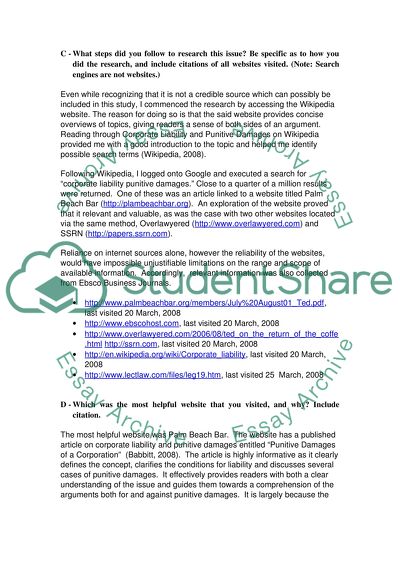Cite this document
(Limitations on Punitive Damages Assignment Example | Topics and Well Written Essays - 2424 words, n.d.)
Limitations on Punitive Damages Assignment Example | Topics and Well Written Essays - 2424 words. Retrieved from https://studentshare.org/law/1545224-internet-research-project-topics-in-us-business-law
Limitations on Punitive Damages Assignment Example | Topics and Well Written Essays - 2424 words. Retrieved from https://studentshare.org/law/1545224-internet-research-project-topics-in-us-business-law
(Limitations on Punitive Damages Assignment Example | Topics and Well Written Essays - 2424 Words)
Limitations on Punitive Damages Assignment Example | Topics and Well Written Essays - 2424 Words. https://studentshare.org/law/1545224-internet-research-project-topics-in-us-business-law.
Limitations on Punitive Damages Assignment Example | Topics and Well Written Essays - 2424 Words. https://studentshare.org/law/1545224-internet-research-project-topics-in-us-business-law.
“Limitations on Punitive Damages Assignment Example | Topics and Well Written Essays - 2424 Words”, n.d. https://studentshare.org/law/1545224-internet-research-project-topics-in-us-business-law.


